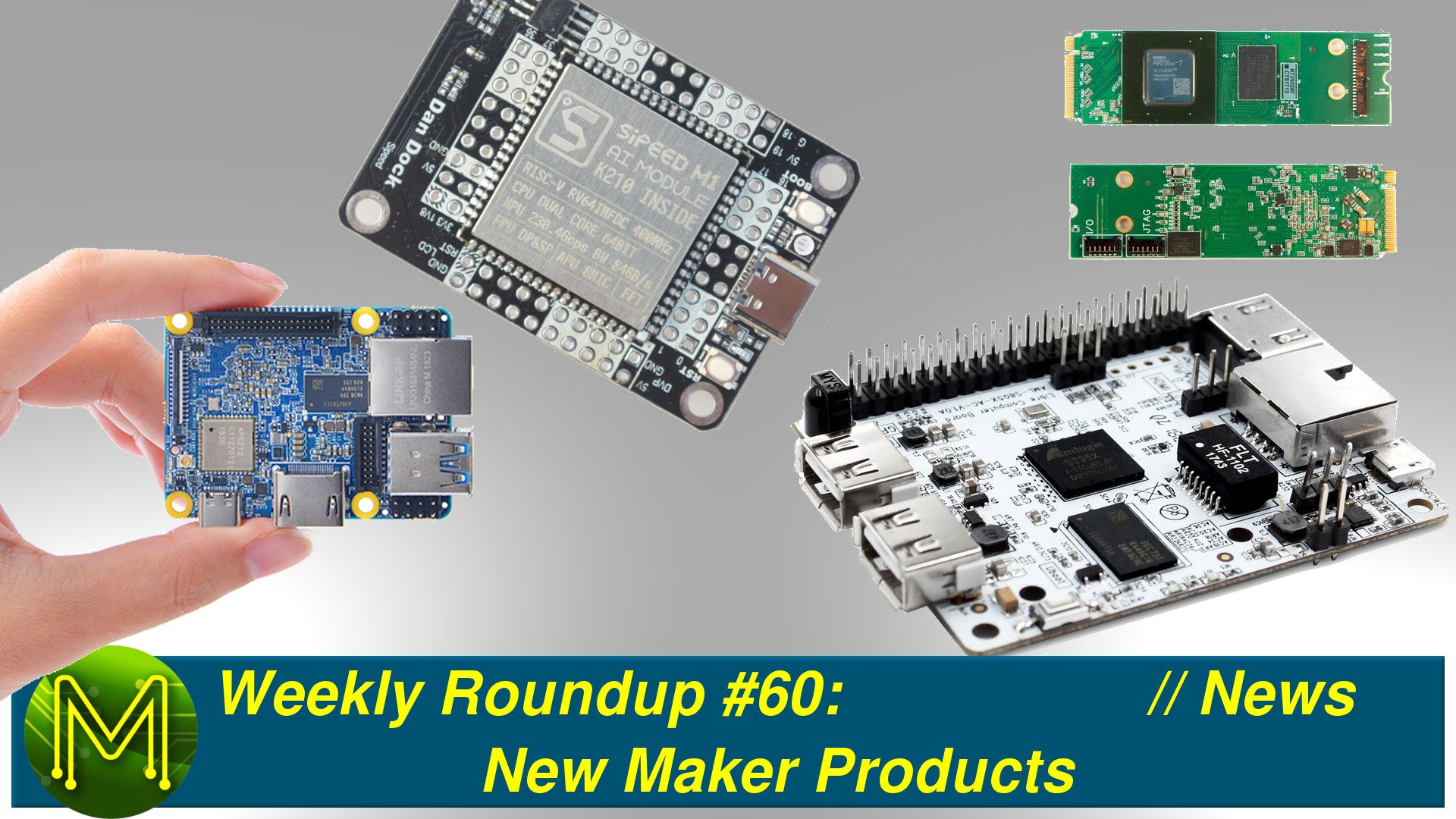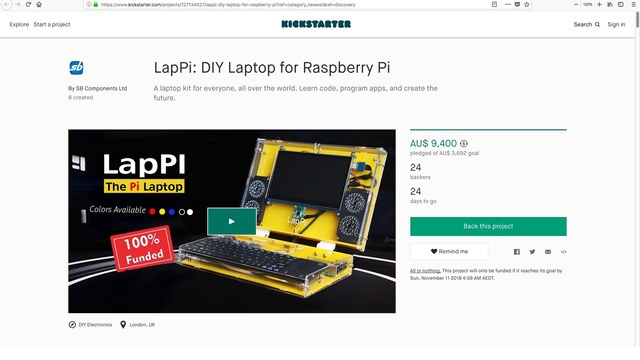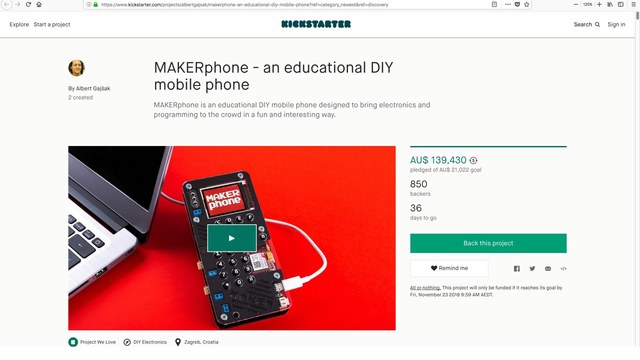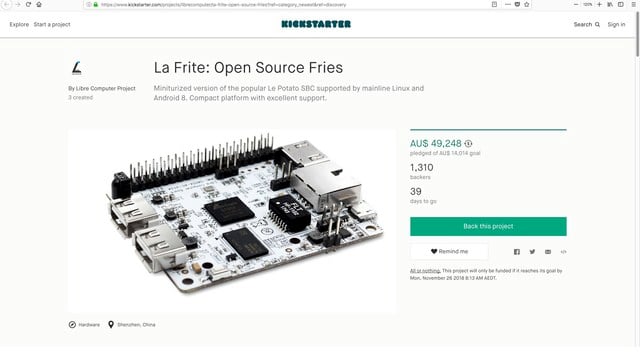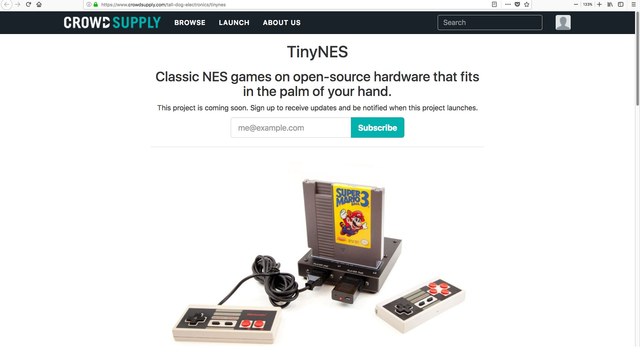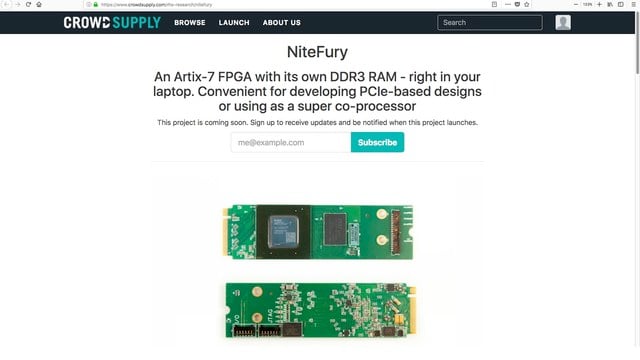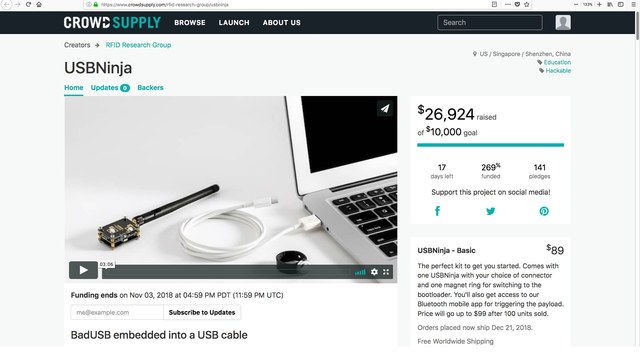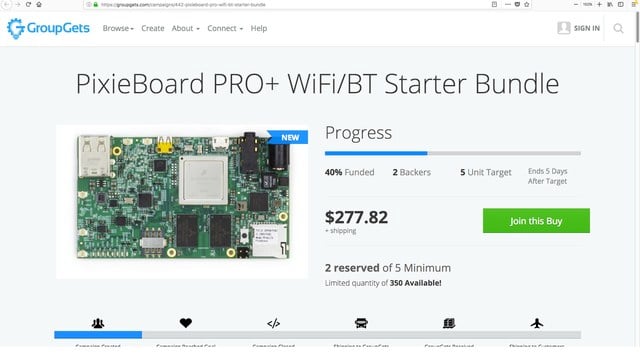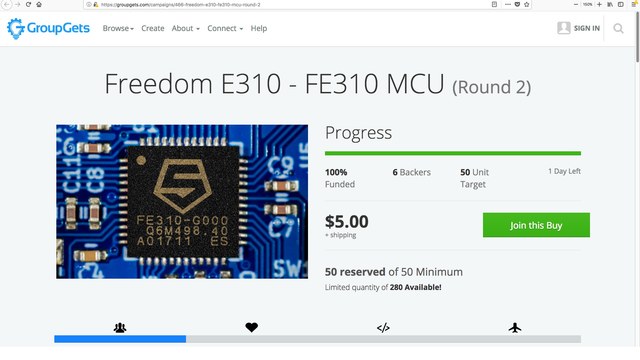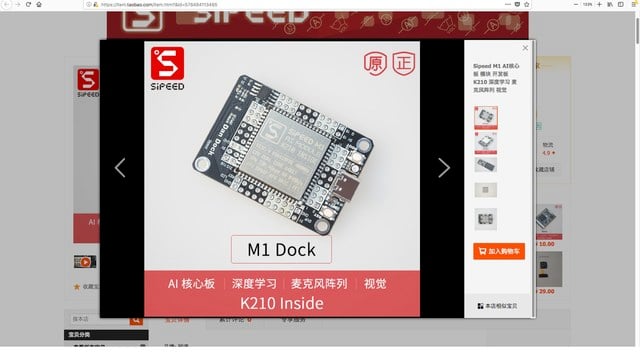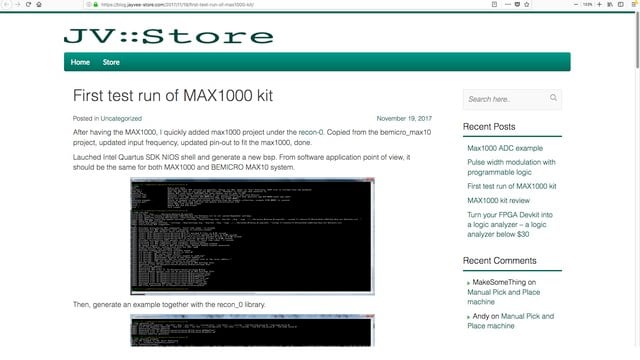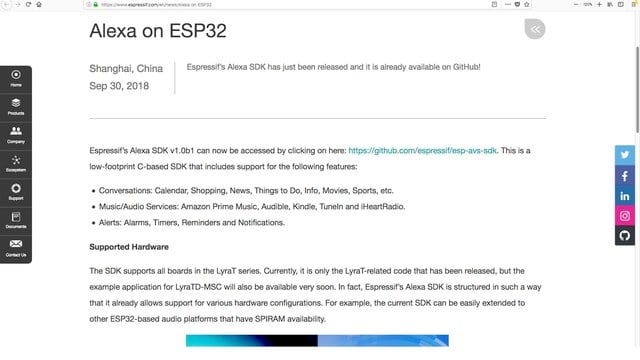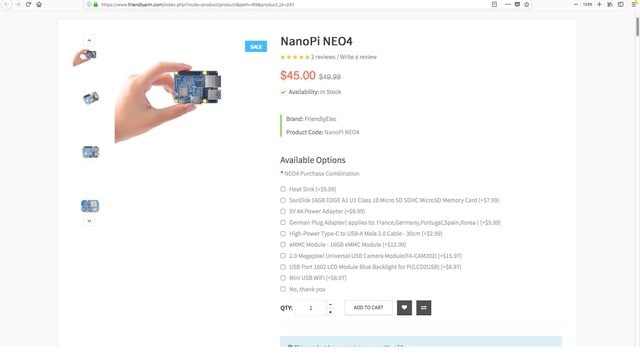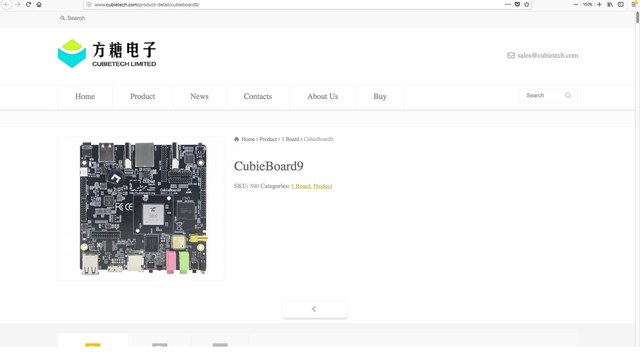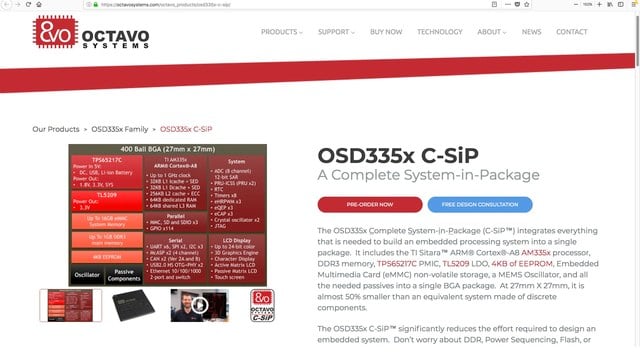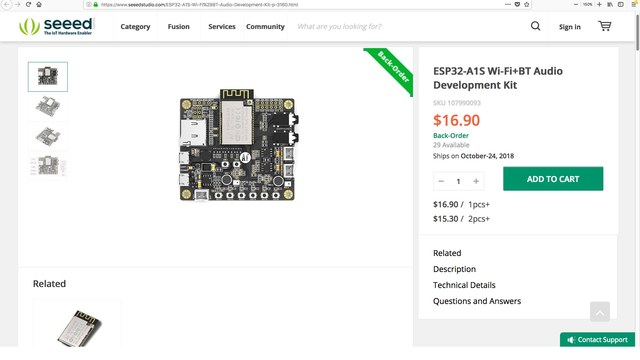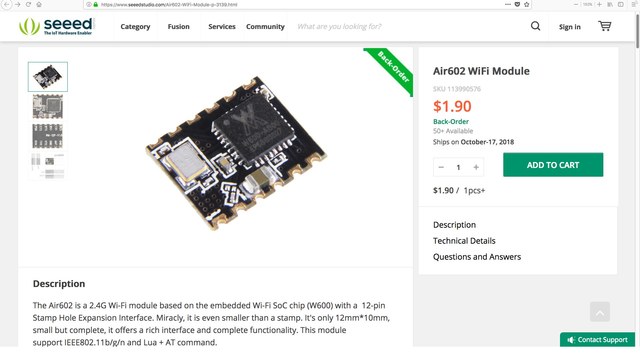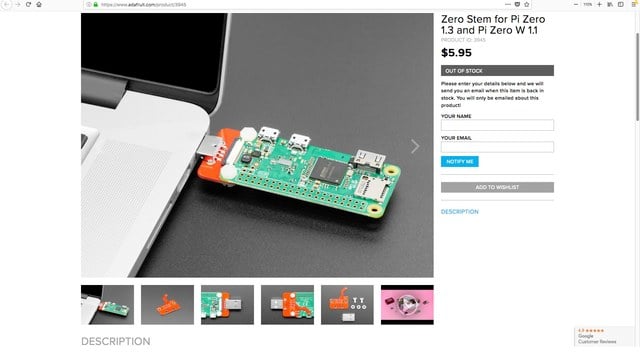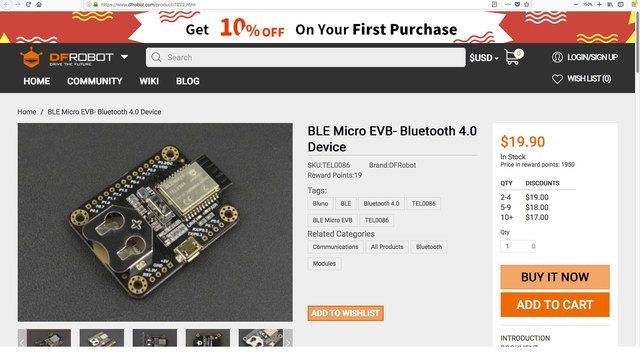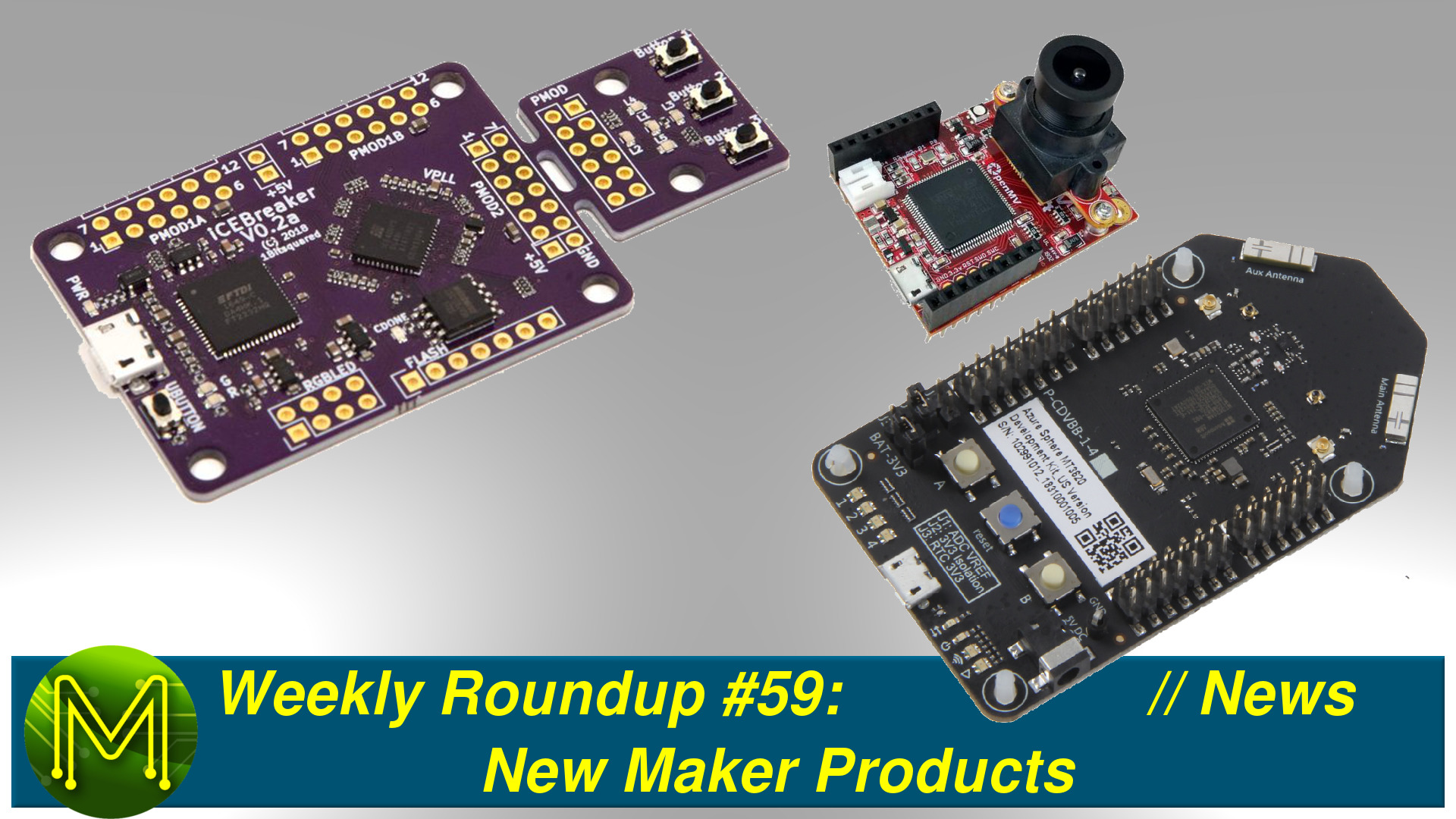Weekly Roundup #60: New Maker Products // News
Watch "Weekly Roundup #60: New Maker Products // News" on YouTube.
This week’s Weekly Roundup is actually a little short, but we have FPGAs, SBCs and other cool things I’ve found in my travels on the interwebs.
ERROR:not .src - map[alt: class: control: ctx:0xc009f8c1e0 height: href: id:ae4IfXuWDHg inline: size: span: src: style: thumbnail: title: width: xml:]
Crowd Funding
KickStarter
LapPi
First up on Kickstarter there’s an interesting campaign that converts a Raspberry Pi into a fully functional laptop. While it has a pretty decent coolness factor, I sort of question this, because at 137 pounds you can get a cheap laptop that would out-strip the old Pi. But anyway…MAKERphone
MAKERphone, sort of fits into this category as well. For US$94 you can pick up your very own mobile phone that you have to build yourself. The kit comes with not only all the hardware, but has firmware that allows programming via Python, Scratch or the Arduino IDE. So you can make your own apps and games, or just use the inbuilt ones.La Frite
Way back in Weekly Roundup #39 we saw the Le Potato SBC, well now you can get your hands on a smaller version of this board on Kickstarter. The La Frite SBC runs the quad-core Amlogic S805X SoC running at 1.2GHz, 512M or 1GB DDR4 RAM, eMMC, 128Mb SPI flash, HDMI 2.0, 100MbE, USB2.0 and sort of Pi compatible GPIO header. It’s claimed to be the same footprint as the original Pi A+, but with a few differences. You will have noticed that there’s no SD slot. So booting will have to be from eMMC or network, but supports mainline kernel releases. The really interesting thing is that you can pick up the 512MB version for only US$10! or the 1GB version for US$15. Nice.IoT LoRa Boards
Another campaign for a couple of Raspberry Pi hats.The first one has a mini PCIe slot allowing a RAK833 LoRa gateway to be added. The second board has a RAK811 LoRa module providing a full LoRaWAN stack talking over UART to the Pi. The third one isn’t really a Pi hat, but the same RAK811 LoRa module with a micro:bit connector. At 120 British Pounds for the gateway and 59 pounds for the node, they are fairly expensive, but they remove the hassle of having to run your own LoRaWAN stack.
Crowd Supply
TinyNES
Over at Crowd Supply there’s the TinyNES in pre-launch. This doesn’t run NES games via emulator or FPGA, but on the original Ricoh RP2A03 CPU and RP2C02 PPU. Apart from that, everything has been updated, but alas doesn’t support HDMI out, but instead the original NTSC video.NiteFury
NiteFury is another FPGA board in an M.2 form factor. This is an upgrade on the PicoEVB, with Xilinx Artix-7, 1 to 8GB DDR3 RAM, and supporting 4 lane PCIe. This is one beefy FPGA board.USBNinja
On the outside, the NinjaUSB looks like a harmless USB cable. However, on the inside it’s full of a lot of mischievousness. Once plugged in it’ll behave like a normal USB cable, but the onboard Bluetooth module can then be told to run any variety of attacks that are configurable via the Arduino IDE. To activate programming the on-board magnetometer will detect the presence of a small magnet. There’s demo code for moving the mouse or injecting keystrokes. It’ll be interesting to see if you can read keyboard strokes as well.GroupGets
PixieBoard Pro+
Over at GroupGets you can pick up a PixieBoard Pro+ for quite a lot of money, but for that you do get the quad-core Cortex-A9 iMX6Q as well as 4G DDR3 RAM, WiFi, Bluetooth, GbE, GPS, NFC, HDMI, 2 SD slots and mPCIe slot via connectors on the underside. So, it’s a pretty beefy board for the price.Freedom E310 MCU
And if you want your very own SiFive MCU, you can pick them up at US$5 a pop. That’s pretty decent for these tiny open hardware RISC-V SoCs. In fact, I think I’ll pick up a bunch of them and add this as an option to my next generation Pi Projector.Honorable mentions
Sipeed M1 K210
HackADay pointed to an interesting chip over at TaoBao. This seems to be manufactured by a company called Kendryte. The Sipeed M1 K210 is a 400MHz dual-core RISC-V chip with 6MB RAM, 60 GPIOs and supports TensorFlow out of the box. There’s already a fair amount of documentation and SDKs available on GitHub, so will be interesting to see what people do with this.FPGAs for beginners
FPGAs are still fairly tricky to work with, but with people like Luke Valenty and 1-bit-squared coming up with some easy on-boarding it’s getting easier. Jeff Lieu has jumped in to help, by providing libraries and hardware definitions for Arrow’s MAX1000 FPGA board. This runs the Altera FPGA which contains a CPU core. So, Jeff’s libraries allow you to get onboard with FPGA design fairly easily.RISC-V design contest
The RISC-V guys are currently looking for someone to push the limits of innovation with the first FPGA competition. This is being sponsored by Google, Microchip and Antmicro with the prize money being US$6,000. There are four different categories available to enter based on either the SpartFusion2, IGLOO2 or UltraPlus boards.Alexa on ESP32
We’ve seen many projects around hacking Alexa onto the ESP32. Well now Espressif have released their own Alexa SDK. This supports audio, conversation and music services. Pretty much the whole lineup of services provided by Amazon. The currently only support the LyraT based boards, but they claim it can be extended to support other ESP32 modules.NanoPi Neo4
The FriendlyARM guys have been hammering away at designs based on the RK3399 SoC. If you saw my NanoPC-T4 review, you would have seen that it’s one of the better supported SoCs, but a little power hungry. Now you can pick up possibly the smallest, cheapest RK3399 based SBC from FriendlyARM. For US$45 you get 1GB DDR3 RAM, (but you can also get 2G and 4GB versions), eMMC, SD slot, HDMI out capable of 4K @ 60Hz, MIPI-CSI, GbE, WiFi, Bluetooth, USB3.0 and thankfully USB Type C power. The 40 pin GPIO header isn’t a classic “let’s just copy the Pi Foundation GPIO header”, but also contains PCIe pins and is a shrouded header. It’ll be interesting to see if they have fixed the logic level problems that I saw with the NanoPC-T4. But for the price, who cares?CubieBoard9
If you’re a fan of the CubieTech SBCs, then they are about to release the CubieBoard9. This runs the quad-core Actions S900 SoC with 3G DDR3 RAM, 16G eMMC, 100MbE, WiFi, Bluetooth, 2 HDMI out, eDP, MIPI-DSI and CSI and a whole bunch of other things that’s making my mouth sore trying to say. But it does have LiPo battery support. Nice to see.OSD335x C-SiP
The Octavo Systems guys are well known for their system on package that’s used in the BeagleBones. Well, they now have a small upgrade on this SiP called the OSD335x C-SiP. This adds in a 24MHz MEMS oscillator and 16GB eMMC along with the 1G DDR3 RAM, PMIC and EEPROM. This will reduce the size of SBCs even further removing the need for external storage.AdaFruit, Seeed, SparkFun, DFRobot, DigiKey
ESP32-A1S
If you saw my last mailbag video, you would have seen me unbox a pre-release of several new Seeed Studio products. One of them was an unknown board that they hadn’t even put up on their website. Well, now you can pick the ESP32-A1S module, ESP32-Audio-Kit, and ESP32-CAM module from their website.EDIT: These products have now been discontinued!

